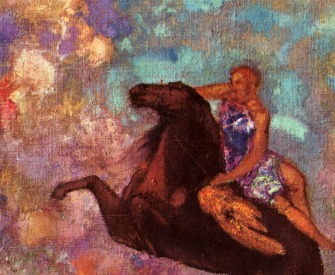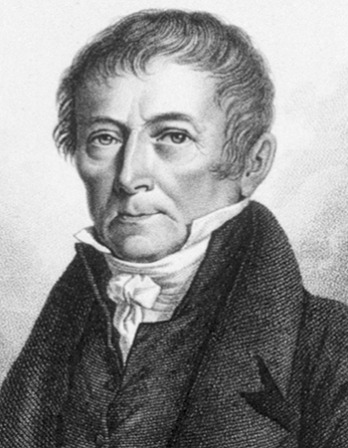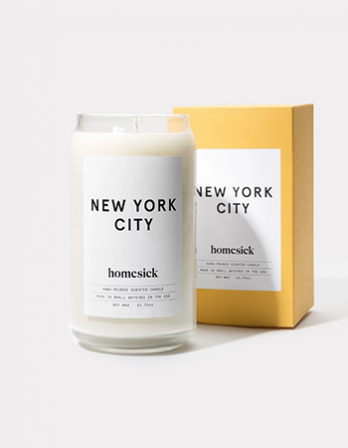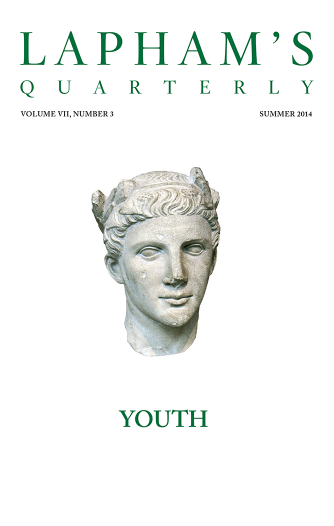God sells us all things at the price of labor.
—Leonardo da Vinci, 1500Goodbye to the Bourgeoisie
Daniel Defoe on life in the vital center.
I was born in the year 1632, in the city of York, of a good family. Being the third son and not bred to any trade, my head began to be filled very early with rambling thoughts. My father, who was very ancient, had given me a competent share of learning, as far as house education and a country free-school generally goes, and designed me for the law; but I would be satisfied with nothing but going to sea, and my inclination to this led me so strongly against the will, nay, the commands of my father, and against all the entreaties and persuasions of my mother and other friends, that there seemed to be something fatal in that propension of nature tending directly to the life of misery which was to befall me.
My father, a wise and grave man, gave me serious and excellent counsel against what he foresaw was my design. He called me one morning into his chamber, where he was confined by the gout, and expostulated very warmly with me upon this subject. He asked me what reasons more than a mere wandering inclination I had for leaving my father’s house and my native country, where I might be well introduced and had a prospect of raising my fortunes by application and industry, with a life of ease and pleasure. He told me it was for men of desperate fortunes on the one hand, or of aspiring, superior fortunes on the other, who went abroad upon adventures, to rise by enterprise and make themselves famous in undertakings of a nature out of the common road; that these things were all either too far above me or too far below me; that mine was the middle state, or what might be called the upper station of low life—which he had found by long experience was the best state in the world, the most suited to human happiness, not exposed to the miseries and hardships, the labor and sufferings of the mechanical part of mankind, and not embarrassed with the pride, luxury, ambition, and envy of the upper part of mankind. He told me I might judge of the happiness of this state by this one thing, viz., that this was the state of life which all other people envied; that kings have frequently lamented the miserable consequences of being born to great things and wished they had been placed in the middle of the two extremes, between the mean and the great; that the wise man gave his testimony to this as the just standard of true felicity when he prayed to have neither poverty nor riches.
He bid me observe it, and I should always find that the calamities of life were shared among the upper and lower parts of mankind, but that the middle station had the fewest disasters and was not exposed to so many vicissitudes as the higher or lower part of mankind. Nay, they were not subjected to so many distempers and uneasinesses either of body or mind as those were who, by vicious living, luxury, and extravagancies on the one hand, or by hard labor, want of necessaries, and mean or insufficient diet on the other hand, bring distempers upon themselves by the natural consequences of their way of living; that the middle station of life was calculated for all kind of virtues and all kind of enjoyments; that peace and plenty were the handmaids of a middle fortune; that temperance, moderation, quietness, health, society—all agreeable diversions, and all desirable pleasures—were the blessings attending the middle station of life; that this way men went silently and smoothly through the world and comfortably out of it, not embarrassed with the labors of the hands or of the head, not sold to the life of slavery for daily bread, or harassed with perplexed circumstances which rob the soul of peace and the body of rest; not enraged with the passion of envy or secret burning lust of ambition for great things but in easy circumstances sliding gently through the world, and sensibly tasting the sweets of living—without the bitter—feeling that they are happy and learning by every day’s experience to know it more sensibly.
After this, he pressed me earnestly and in the most affectionate manner not to play the young man, not to precipitate myself into miseries which nature and the station of life I was born in seemed to have provided against; that I was under no necessity of seeking my bread; that he would do well for me and endeavor to enter me fairly into the station of life which he had been just recommending to me; and that if I was not very easy and happy in the world it must be my mere fate or fault that must hinder it, and that he should have nothing to answer for, having thus discharged his duty in warning me against measures which he knew would be to my hurt—in a word, that as he would do very kind things for me if I would stay and settle at home as he directed, so he would not have so much hand in my misfortunes as to give me any encouragement to go away. And to close all, he told me I had my elder brother for an example, to whom he had used the same earnest persuasions to keep him from going into the low-country wars, but could not prevail, his young desires prompting him to run into the army, where he was killed; and though he said he would not cease to pray for me, yet he would venture to say to me that if I did take this foolish step, God would not bless me, and I would have leisure hereafter to reflect upon having neglected his counsel when there might be none to assist in my recovery.
I observed in this last part of his discourse, which was truly prophetic, though I suppose my father did not know it to be so himself—I say, I observed the tears run down his face very plentifully, and especially when he spoke of my brother who was killed; and that when he spoke of my having leisure to repent, and none to assist me, he was so moved that he broke off the discourse and told me his heart was so full he could say no more to me.
I was sincerely affected with this discourse, as indeed who could be otherwise? And I resolved not to think of going abroad any more, but to settle at home according to my father’s desire. But alas! A few days wore it all off, and in short, to prevent any of my father’s further importunities, in a few weeks after I resolved to run quite away from him.

Daniel Defoe
From Robinson Crusoe. Having abandoned his plans for the ministry in his midtwenties, Defoe tried his luck as a merchant in 1683. Of the experience he later wrote, “No man has tasted differing fortunes more,/And thirteen times I have been rich and poor.” Despite going bankrupt for £17,000 in 1692, he went on to publish Robinson Crusoe serially beginning in 1719 and both Moll Flanders and A Journal of the Plague Year in 1722.




